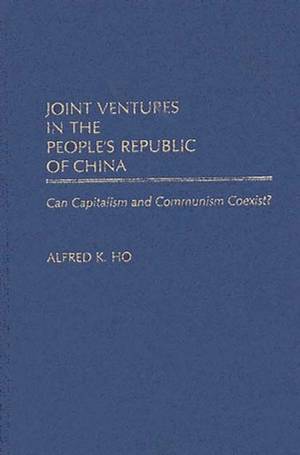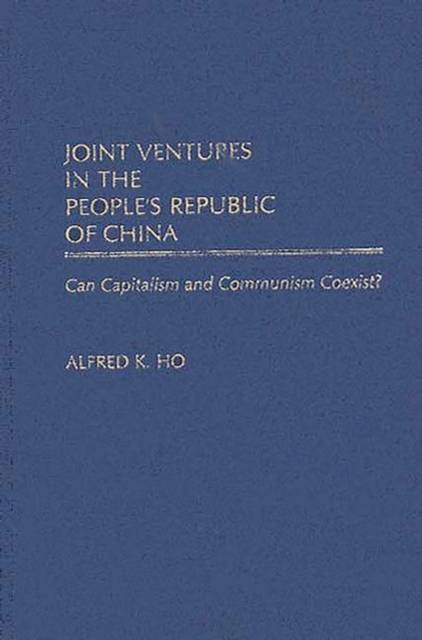
- Retrait gratuit dans votre magasin Club
- 7.000.000 titres dans notre catalogue
- Payer en toute sécurité
- Toujours un magasin près de chez vous
- Retrait gratuit dans votre magasin Club
- 7.000.000 titres dans notre catalogue
- Payer en toute sécurité
- Toujours un magasin près de chez vous
Joint Ventures in the People's Republic of China
Can Capitalism and Communism Coexist?
Alfred Kuo-Liang Ho, Alfred K Ho
127,45 €
+ 254 points
Description
In the 1980s, the Communist government in China sought to accelerate economic growth and institute economic reforms by increasing productivity and introducing free enterprises and free markets. Requiring foreign capital, a system for joint ventures was established to allow foreign companies to form partnerships with Chinese firms in a variety of business and production activities. This work examines the legal, business, and practical issues involved in undertaking and maintaining joint ventures in the People's Republic of China, offering guidance on the laws, regulations, and procedures governing such ventures, and the effect of the Tianamen Square incident on these business vehicles.
The work is divided into six chapters, each addressing a different aspect of joint ventures. Chapter 1 places the subject into a historical context, tracing how these ventures emerged as a part of economic reform and what guidelines were established to ensure their value to both participants. Chapter 2 details the methods by which the government translated the ideas and policies into national and local legislation, and lists and explains a few basic statutes. The procedure for establishing a joint venture is fully described in chapter 3, from finding a Chinese firm to sharing the profits and eventually dissolving the partnership. Chapter 4 explores the nature, activities, and success of joint ventures from 1979 to 1987, while Chapter 5 focuses on the Tianamen Square incident and the shift in government policy that followed it. A final chapter provides summary observations on the investment environment in China and the impact of joint ventures on the country's economy. This book will be an essential reference source for courses in international finance and trade, Asian and Chinese studies, and development economics, as well as for finance professionals involved in multinational enterprises. Public and academic libraries will also find it to be a useful addition to their collections.Spécifications
Parties prenantes
- Auteur(s) :
- Editeur:
Contenu
- Nombre de pages :
- 184
- Langue:
- Anglais
- Collection :
Caractéristiques
- EAN:
- 9780275934330
- Date de parution :
- 24-08-90
- Format:
- Livre relié
- Format numérique:
- Genaaid
- Dimensions :
- 156 mm x 234 mm
- Poids :
- 439 g







